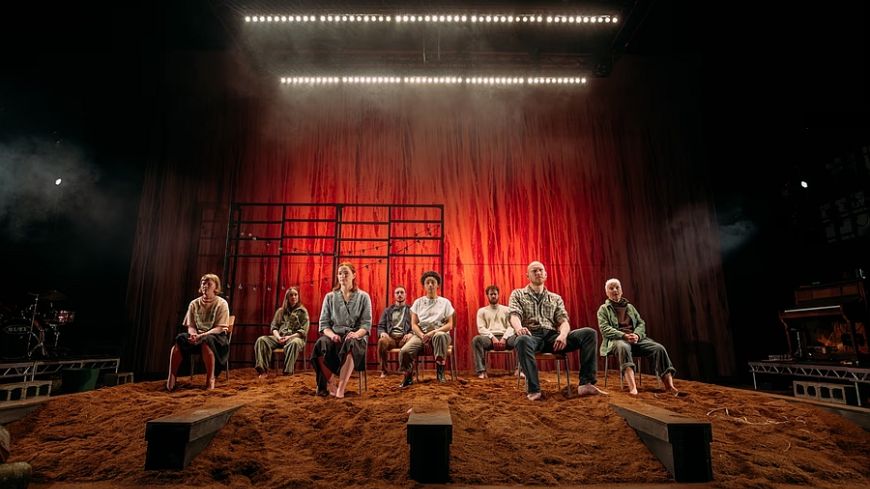
The Den of Kinraddie was once stalked by a gryphon, a beast which terrified the local populace. These lands are rich in lore and history, of revolt, rebellion, reform and above all rebirth. An endless cycle of ploughing, drilling, seedtime and harvest, bookended by the unfurrowed field, all set against change, uncertainty and adversity.
Growing up in this land is Chris, a young woman rooted in the earth but drawn to “brave and fine” learning, dismissive of the coarse speak of the local folk. And so, two Chrisses go to school, one “right douce and studious” and the other homesick for the sweetness of the land and the crying of the peewits across the skies.
Her mother encourages her to play in the countryside while neither a “bairn nor a woman” while her father respects education. A man of countless contradictions he is strong in many ways – proud, honest, hard-working, and loyal, but he is also quick tempered, stubborn, bitter, and brutal. Tortured by his own religion and any notions of sexuality he loves the land more than his soul or God.
The land is tossed and turned and perpetually transformed, as is the life of the close knit, gossipy and judgemental farming community as tradition must face modernisation and the glowering prospect of the approaching World War. None more so than by the dramatic events that shake Chris and her flawed family. Against this changing landscape she will need to choose which of the two Chrisses she wants to be.
The story is told by the chorus cast of actor / musicians traversing the brown earth rigs beneath changing skies and before a backdrop of growing crops. The telling is often lyrical, borrowing from Gibbon’s prose and Doric language and utilising music and movement to varying success. The atmospheric sound design elevates where the music does not always. The cyclical nature of sowing and reaping is effectively suggested in movement, often digging into the set itself, but can be awkward, as in the repeated re-setting and stacking of chairs.
Allegorical and heavy in metaphor, it’s also something of two halves and the tension nicely built in the first isn’t carried throughout, and although it’s well performed, this lessens the social drama. There is just a hint of 7/84 in the style (no bad thing but feeling a little dated).
Telling of the earth and rebirth, it’s a strong production evoking the ghosts of a not always positive way of life, but at the end of the day as a theatre piece it never quite sings.
Show Times: 27 May to 8 June at 7.30 pm. Saturday and Wednesday (5th) matinee performances at 2.30pm. (Signed 5th 7.30pm, Audio described and touch tour 6th and 8th 2.30pm).
Tickets: £18 to £40 (see site for details)
Suitability: 14+ (Contains depictions of suicide, sexual abuse, rape, and violence).

